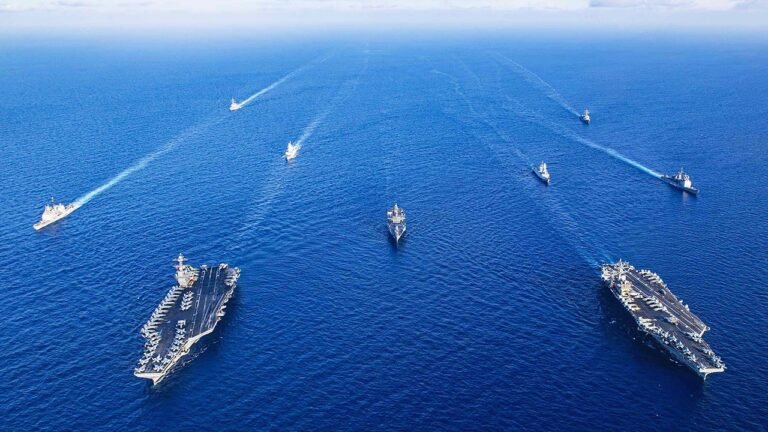
Welcome to the New Era of Global Sea Power
Introduction
The geopolitical landscape is experiencing a seismic shift as the world’s oceans reclaim their fundamental role in international relations and power dynamics. The phrase “Welcome to the New Era of Global Sea Power” has been echoed in numerous scholarly articles and reports, underscoring the increasing importance of maritime power in global politics. This report delves into the concept, as highlighted in various sources, and examines the implications of this new era for global trade, military strategy, and geopolitical stability.
Rise of Maritime Significance
Economic Impacts
The year 2023 saw remarkable growth in seaborne trade and shipbuilding. According to a report by ProQuest, the ClarkSea index, which measures the average daily earnings for the world’s shipping fleets, was 33% above its ten-year trend. Seaborne trade increased by 3% to 12.4 billion tonnes, and global shipbuilding surged by 10%, with China contributing over half of the output for the first time (“Welcome to the New Era of Global Sea Power – ProQuest”). These statistics highlight the pivotal role of maritime routes in global trade, as approximately 80% of global trade by volume is conducted by sea.
Geopolitical Ramifications
The resurgence of sea power is not just an economic phenomenon but also a geopolitical one. The Economist, in a compelling article titled “Welcome to the New Era of Global Sea Power,” posited that oceans, once on the periphery of geopolitical discourse, have now reclaimed their central role in shaping international power dynamics (Future Center). This shift is driven by increased competition and conflict, emphasizing the strategic importance of controlling crucial maritime routes.
Military and Strategic Dimensions
US Military Involvement
Eugene Gholz, in an article for CATO At Liberty, noted that the US military’s role in the Red Sea is becoming increasingly offensive, a move he criticizes as a poor strategic decision (Global Disorder and Houthi Strikes – War on the Rocks). This highlights the broader trend of nations ramping up their naval capabilities to secure their interests in pivotal maritime regions.
Global Naval Developments
The Royal Navy Strategic Command’s first Strategic Digest of 2024 emphasized that competition and conflict have brought sea power back to the forefront of geopolitics (“PDF Highlights This Month”). Similarly, the Hoover Institution’s research pointed out that China’s People’s Liberation Army Navy (PLAN) is intensifying its submarine training, further underscoring the global race for maritime dominance (Articles On: Taiwan, Global Sea Power, Moscow, PLAN Submarine Training).
Conclusion
The new era of global sea power is characterized by a renewed focus on maritime routes for economic, military, and geopolitical purposes. The significant rise in seaborne trade and shipbuilding, coupled with increased naval activities by major powers, underscores the critical importance of maritime dominance in the 21st century. As nations recalibrate their strategies to navigate this complex landscape, the world’s oceans will undoubtedly play a central role in shaping the future of international relations.
References
- “Global Disorder and Houthi Strikes – War on the Rocks.” War on the Rocks, January 2024. War on the Rocks
- “Future Center.” Future Center, January 2024. Future Center
- “PDF Highlights This Month.” Royal Navy Strategic Command, January 2024. Royal Navy Strategic Command
- “Articles On: Taiwan, Global Sea Power, Moscow, PLAN Submarine Training.” Hoover Institution, January 2024. Hoover Institution
- “Welcome to the New Era of Global Sea Power – ProQuest.” ProQuest, January 2024. ProQuest













+ There are no comments
Add yours